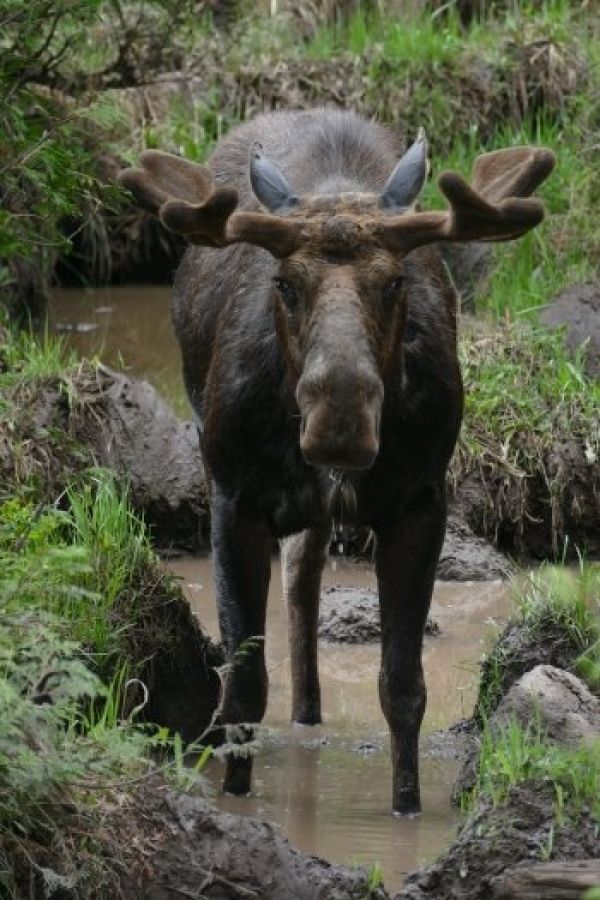A research team, including ecologists from Michigan Technological University, fitted radiocollars on 20 moose this February to better understand the island’s population.
Following the reintroduction of several collared wolves from the Grand Portage Indian Reservation in Northeastern Minnesota to Isle Royale National Park last fall, a team of researchers have now collared moose at the park for the first time since 1984.
The unique collaboration between Michigan Tech, University of Minnesota College of Veterinary Medicine, National Park Service and Grand Portage Band of Lake Superior Chippewa aims to help the National Park Service assess the impacts of predator restoration to the ecosystem at the park. This effort marks the beginning of a novel effort to compare the predator-prey dynamics and health of the population of moose on Isle Royale National Park to a neighboring population of collared moose on the mainland on the Grand Portage Indian Reservation. It also represents an opportunity to evaluate the impact of restoring predation to the ecosystem.
The research supplements annual surveys led by Michigan Tech and the National Park Service in the world’s longest running predator-prey study.
Continue reading at Michigan Technological University.
Image via Michigan Technological University.


